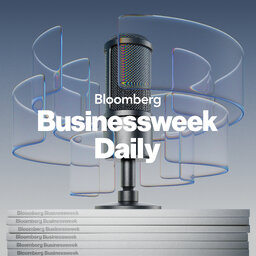Meta's Zuckerberg on Largest Open-Source AI Model Ever
Watch Carol and Tim LIVE every day on YouTube: http://bit.ly/3vTiACF.
Bloomberg Originals Host Emily Chang discusses the latest edition of The Circuit featuring an interview with Meta CEO Mark Zuckerberg. Dr. Kelly Monahan, Managing Director at Upwork, explains why workers are saying AI has added to their workload. And we Drive to the Close with Jimmy Lee, CEO at Wealth Consulting Group.
Hosts: Carol Massar and Tim Stenovec. Producer: Paul Brennan.
In 1 playlist(s)
Bloomberg Businessweek
Carol Massar and Tim Stenovec bring you reporting from the magazine that helps global leaders stay a…Social links
Follow podcast
Recent clips

Aon CFO Edmund Reese on 4Q Earnings, Global Risk Outlook
08:21

Bloomberg Businessweek Weekend - January 30th, 2026
1:14:49

Warsh Set to Face Early Reality Check as Trump’s Man at the Fed
28:01
 Bloomberg Businessweek
Bloomberg Businessweek